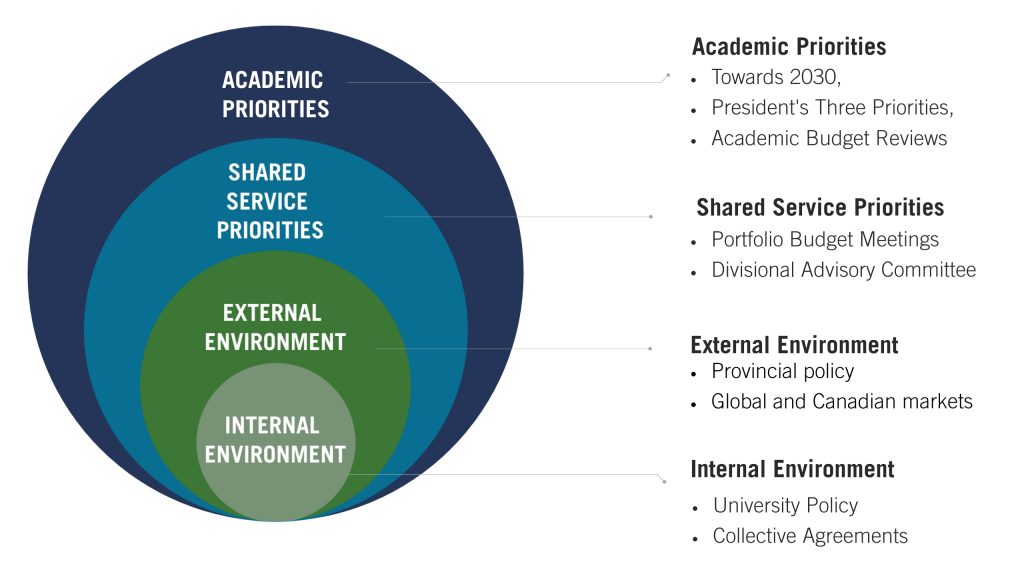Budget plans are shaped by the University of Toronto’s academic priorities as articulated in the President’s Three Priorities, the Towards 2030 academic plan, the Provost’s five priorities, and other documents. The President’s three priorities – internationalization, engagement with the city-region, and re-imagining the undergraduate experience – have been the focus of activities such as increased support for international experience and study abroad, investments in experiential learning, and the work of an expert panel on undergraduate student educational experience. Other major priorities include supporting student success and well-being through investments in mental health services; curricular and co-curricular programming that helps students become graduates who will make significant impacts on their communities and the world; and cross-disciplinary research that addresses local and global challenges in areas such as personalized medicine, the impact of new technologies on society, and data sciences. All of these priorities provide institutional context for divisional academic planning, which in turn leads to investment in specific initiatives and activities throughout the University.
The budget is the culmination of many months of planning and the decisions of many academic and administrative units. Through the annual budget planning process, academic divisions participate in detailed review of revenues and expenses and make decisions locally. Decisions are rolled up for review and approval, informed by relevant economic factors, risk assessments, collective agreements, provincial and University policies, and then approved by administration and governance.


